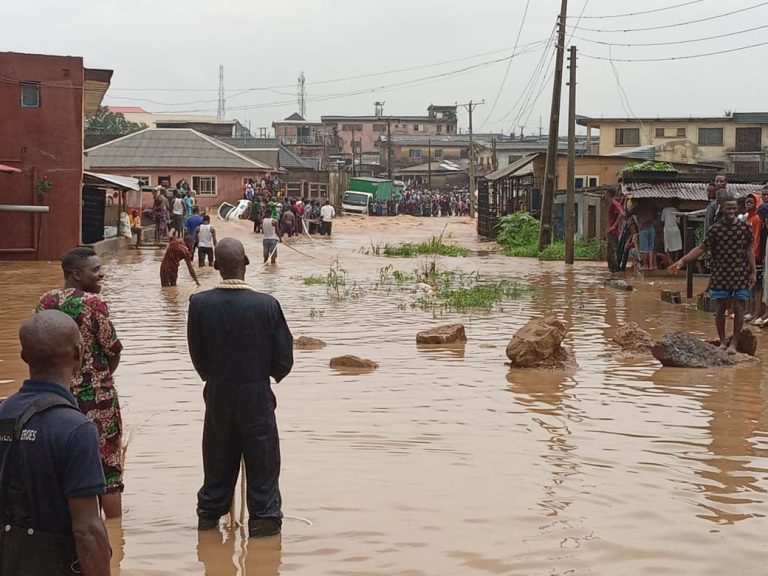There are no products in your shopping cart.
| 0 Items | £0.00 |


UNITED Nations (UN) officials have warned that as many as 19m people are facing the risk of food shortages in Nigeria this year as a result of the recent flooding that has destroyed up to 440,000 hectares of farmland across the country.
As many as 100,000 people have been displaced across Nigeria's Middle Belt over the last few months with up to 300 reported dead as a result of flooding brought about by Cameroon opening its Lagdo Dam and releasing tonnes of water. With the flooding showing no sign of abating, the UN has raised concerns about the impact it will have on food supplies.
River Benue flows into Nigeria from Cameroon and the Cameroonian authorities have built the Lagdo Reservoir 50 km south of the city of Garoua to help regulate the flow of water. Whenever the water in the artificial lake rises dangerously, however, the Cameroonians open the dam but because the Nigerian authorities have no flood control plans, this always leads to problems.
With the recent heavy rainfall witnessed in Nigeria, coupled with the opening of the dam, over 1m Nigerians have been displaced and at least 600 killed in the past few months. Data released by the National Emergency Management Agency (Nema) and the Nigeria Hydrological Services Agency (Nihsa) , showed that the situation is dire.
UN spokesman Stephane Dujarric, added: “We are gravely concerned that the flooding will worsen the already alarming food insecurity and malnutrition situation in Nigeria. At least 440,000 hectares of farmland have been partially or totally damaged and more than 19m people across Nigeria are facing severe food insecurity."
He pointed out that said since July, the Nigeria government has provided food, non-food items and clean drinking water to thousands of families. To augment these efforts, the UN said it was aiding the government with assessments and responses in Borno, Adamawa and Yobe states, along with humanitarian partners.
This support includes providing emergency shelter kits, local water drains, sandbags and walling around shelters to mitigate the impact of the flooding. According to the Food and Agriculture Organisation, cereal production would likely decline by 3.4% in Nigeria this year due to flooding, high agriculture production costs and insecurity.